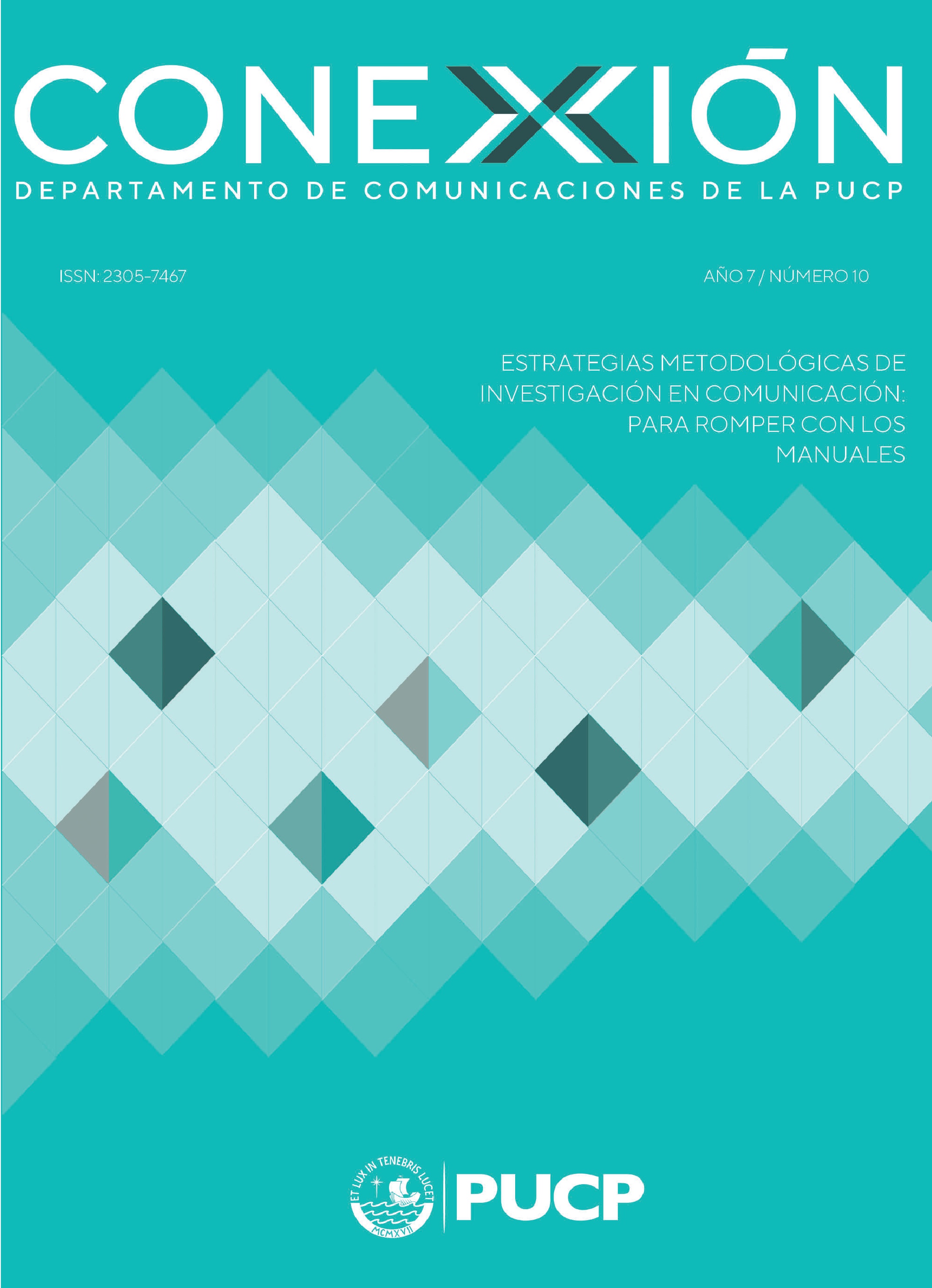¿Cómo estudiar el racismo en la prensa escrita deportiva?
DOI:
https://doi.org/10.18800/conexion.201802.006Palabras clave:
Estereotipos, análisis de contenido, prensa deportiva, racismo, medios de comunicación, PerúResumen
Los estereotipos étnicos y raciales forman parte del lenguaje que la prensa escrita deportiva peruana utiliza en la construcción de las noticias. Al mismo tiempo, tal prensa replica las denuncias de acontecimientos racistas en el fútbol. El presente artículo refl exiona sobre una estrategia metodológica para examinar la coexistencia de ambos elementos en la prensa deportiva peruana. Al tener en cuenta las características específicas de este tipo de prensa y la particularidad del racismo en el Perú, detectamos la necesidad de utilizar un enfoque de investigación que atiende a distintas dimensiones tanto del discurso textual como del discurso como práctica social, cultural y discursiva.
Se trata de un proceso que relaciona tres etapas de recojo de datos: análisis de contenido, análisis crítico del discurso y entrevistas a profundidad a productores del discurso. Puestos en diálogo, los resultados de los tres análisis muestran que la relación aparentemente contradictoria entre el discurso y la práctica de la prensa deportiva peruana son en realidad coherentes con la naturalización del racismo en la sociedad peruana.
Descargas
Publicado
Cómo citar
Número
Sección
Licencia
Derechos de autor 2018 Conexión

Esta obra está bajo una licencia internacional Creative Commons Atribución 4.0.














